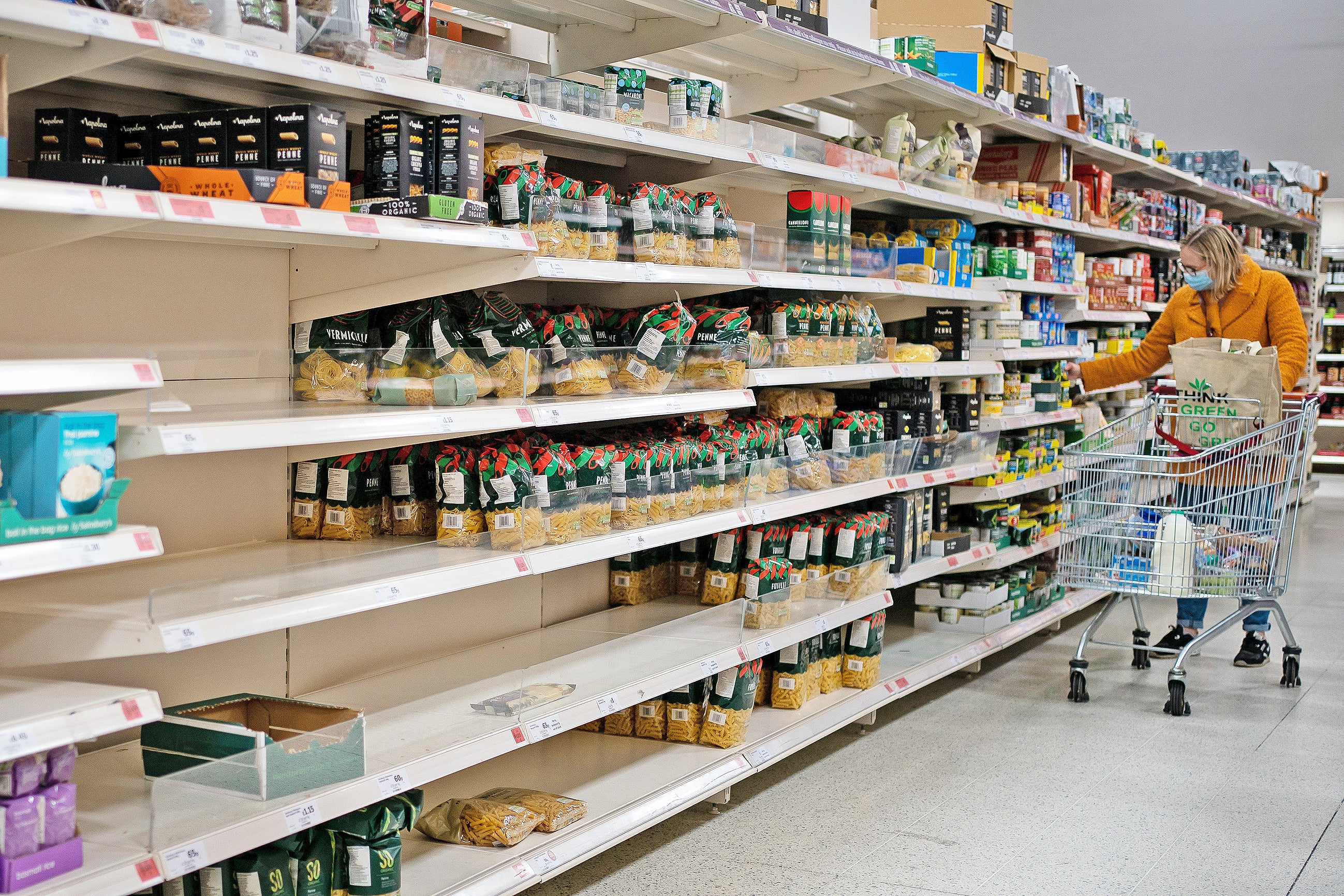Will the government really introduce a cap on food prices?
As ministers consider how to help lower the cost of basics for struggling families, Andrew Grice looks at the plan for tackling the cost of living crisis


The government is considering a plan under which supermarkets would cap the cost of basic foods such as bread and milk to help families struggling with the cost of living crisis.
But after ministers’ discussions prompted lots of headlines about price caps, they appeared to row back from the idea, insisting that any such move would be “voluntary”. A government spokesperson said: “The government is not considering imposing price caps. Any scheme to help bring down food prices for consumers would be voluntary and at retailers’ discretion.”
So will there be a cap on prices?
It’s looking unlikely for now. The government’s thinking emerged in The Sunday Telegraph before the idea had been thought through. Government sources admit it is at “drawing-board stage”. It might now remain there after a backlash from retailers, economists and Conservative MPs.
Where did the idea come from?
Ministers want to bring retailers and suppliers together to ensure prices are kept as low as possible for hard-pressed consumers. Their idea seems similar to an “opt-in” programme in France, where some retailers promised to freeze prices to create an “anti-inflation quarter” between April and June. They face spot checks to ensure they do not squeeze their suppliers.
Ministers are painfully aware that the cost of living is the number one issue for many voters and so want to “do something”. Although the annual rate of inflation fell below 10 per cent in official figures released last week, food inflation is running at 19.1 per cent and has now overtaken fuel as the biggest driver of rising prices – and the biggest headache for many families.
How did retailers react?
With surprise, because the idea was not discussed when Jeremy Hunt, the chancellor, held a summit with supermarkets, farmers and food manufacturers last week.
Andrew Opie, director of food and sustainability at the British Retail Consortium, said: “This will not make a jot of difference to prices. As commodity prices drop, many of the costs keeping inflation high are now arising from the muddle of new regulation coming from government. The government should focus on cutting red tape so that resources can be directed to keeping prices as low as possible.”
Would a price cap work?
The supermarkets, which insist their market is very competitive, say not. Julian Jessop, economics fellow at the free market Institute for Economic Affairs, said: “Caps on food prices are at best a pointless gimmick and, at worst, harmful to the very people they are supposed to help. It is not even certain that the prices of capped goods would end up lower than if there were no cap.”
However, some industry insiders suggest supermarkets might be tempted by “greedflation” – using an inflationary period to boost profits. Bill Grimsey, former chief executive of Iceland, said that while a cap might not work, there is “a need for some action because I don’t think the market is working as well as it should. I don’t see the supermarkets fighting each other [for customers] as much as they should. It is all a bit cosy at the moment.”
Are Tory MPs happy about the proposal?
No. Although they backed an energy price cap because the market was broken, state intervention is anathema to free-market Tories. They joined retailers in accusing the government of turning the clock back to the 1970s, when Edward Heath, then Conservative prime minister, introduced state price controls during another period of high inflation. He is a hate figure for Tory admirers of his nemesis Margaret Thatcher, who abolished price controls after winning the 1979 general election.
Will food prices come down?
Although they show little sign of slowing, this should happen eventually. The food industry has assured the chancellor prices will stop rising but admits there will be a delay because long-term contracts have locked in high prices.
Food inflation is a global problem. Prices rocketed after Russia’s invasion of Ukraine. Although global food commodity prices peaked a year ago, Europe has not yet felt the benefit and food inflation in the eurozone has been similar to the UK’s.
Brexit has probably made the problem worse in the UK. Research from the London School of Economics suggests 30 per cent of the rise in UK food prices since the end of 2019 can be attributed to new trade barriers. The Food and Drink Federation said “friction at the UK’s borders and persistent labour shortages” were partly to blame, along with “expensive and inefficient recycling regulation”.






Join our commenting forum
Join thought-provoking conversations, follow other Independent readers and see their replies
Comments